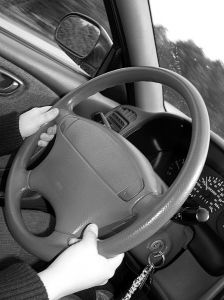 On January 13, 2012, the National Highway and Traffic Safety Administration announced that KIA Motors America, Inc. noticed a recall on Kia Optima sedans manufactured from September 29, 2005 through January 29, 2008. In addition the company is recalling Kia Rondo vehicles manufactured from September 13, 2006 through March 21, 2008. Both models were manufactured with an air bag clock spring that may become damaged over time. Over 145,000 vehicles are potentially affected by the recall, which starts in March 2012.
On January 13, 2012, the National Highway and Traffic Safety Administration announced that KIA Motors America, Inc. noticed a recall on Kia Optima sedans manufactured from September 29, 2005 through January 29, 2008. In addition the company is recalling Kia Rondo vehicles manufactured from September 13, 2006 through March 21, 2008. Both models were manufactured with an air bag clock spring that may become damaged over time. Over 145,000 vehicles are potentially affected by the recall, which starts in March 2012.
An air bag clock spring is named for its coiled shape. It provides an electrical connection between the airbag and the controlling computer. The clock spring sits inside the steering column along side the horn and cruise control. Its coiled shape allows the wiring to make a connection without blocking the steering wheel’s functionality. If the clock spring becomes too worn it will develop a high resistance to electrical current, which could block the signal that activates the air bag. In this case, the driver’s side air bag may not deploy in an emergency situation. If the horn or cruise control on a car is not functioning properly, it is a sign that the clock spring may be damaged and the air bag may also be non-functional.
Kia vehicles owners experienced a flurry of recalls in 2011.The Kia Spectra was recalled in April, 2011 because corroded straps supporting the fuel tank could allow the tank fall to the level of the road. In May, the Kia Sorrento and Kia Soul were recalled for faulty interior lighting which could potentially cause a fire. The Kia Sorrento was also recalled for a second reason- it was susceptible to transmission failure due to a misaligned drive shaft.
A search of customer complaints submitted to the National Highway and Traffic Safety Administration reveals that in addition to the problem with the driver’s side airbag, many consumers submitted complaints about faulty passenger side airbags for multiple Kia models manufactured in 2006-2008. The chief complaint was that the passenger side airbag would not register as active although the car was carrying someone in the passenger seat.
California upholds strict liability for product defects. Therefore, even if a car company took reasonable safety measures to prevent manufacturing defects, it will still be liable for damages caused by any defective products were available to consumers. The California Civil Jury Instructions require 5 factors in order to find that a company is liable for a defective product.
The defendant must have manufactured, distributed, or sold the product. The product must have already contained the defect when it left the company’s possession. Moreover, the plaintiff must be actually harmed by using the product in a way that was foreseeable to the defendant. Finally, the product must be a substantial factor in causing the harm.
The Brod Law Firm earnestly and zealously represents its clients in many areas of personal injury. Our Bay Area product liability attorney is committed to handling product defect cases with expertise. The Brod Law Firm prides itself on communicating with our clients in a straight forward manner. Call us today for a free consultation.
 San Francisco Injury Lawyer Blog
San Francisco Injury Lawyer Blog

